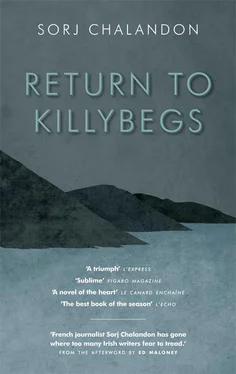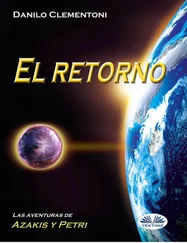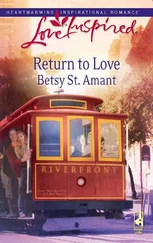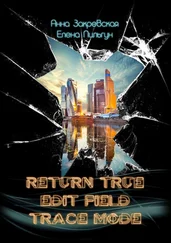— Could you do me a favour?
He nodded and gave me a blissful look.
— When you see Sheila in Belfast, tell her that if the wee Frenchman wants to come, he’ll be welcome.
— The wee Frenchman?
— Just tell her that. She’ll understand.
Josh rested his forehead against his joined hands.
— Give me a little bit of your pain, Tyrone.
He was speaking more and more quietly. — Share your ordeal. Do me that honour. Make me your accomplice.
He had closed his eyes once more.
— I didn’t speak to the IRA, or to Sheila, or to anyone. I didn’t keep it all in just to confess to a monk.
— You’re not in confession, you’re in affection, Tyrone.
— I don’t want your pity, Joseph Byrne. It’s not friendship I’m lacking, it’s dignity.
He looked at me. I moved closer and gently clasped his wrists.
— I’ve betrayed, Josh.
His eyes held the tears that couldn’t fall from mine.
— And betraying has been so difficult, inhuman. It’s been too much for me, Josh. So don’t ask me why. The why is all I have left.
For a long time he sat there watching my face, my expression, my hands that were trembling against his skin. He had his secret smile on.
— Thank you, Tyrone.
I released him and got up slowly.
— Thank you? Why thank you?
— By offering me your pain, you have requested my forgiveness. So I forgive you.
I sighed and shook my head. I left the pew without saying goodbye. Without genuflecting, without crossing myself. I was sick with his love.
— I will share your sadness, your loneliness and your anger as well, Tyrone.
His words followed me, my footsteps running away. It is only in churches and prisons that voices chase you.
I stepped out into the December rain and walked through the village.
I was sad. And lonely. And angry, too.
The kids arrived yelling, throwing rocks and smashing their bottles against the walls.
— The peelers are coming! They’re moving into our streets! shouted a wee boy in a football jersey.
He was smeared in soot and sweat. I stopped him. He was shaking.
— Let go of that, quick!
He looked at the brick he was holding in his hand and let it fall.
— And run! Get home to your father!
— My dad’s in the Crum! he shouted as he tore off.
You could hear explosions very close by. The police were throwing tear gas and firing tracer bullets towards the sky. The youths were surging back in greater and greater numbers, hundreds of them, milling chaotically, led by a few out-of-breath Fianna. They had been throwing stones at a police station and several armoured vehicles. They were being pursued. Usually, the police would give up the chase at the enclave threshold, but on that 14 August 1969 they were pushing right through.
— Bogside! Bogside! Bogside!
The crowd was chanting the name of the Derry neighbourhood where nationalists had been clashing with police for four days.
— Go back home! For the love of God, get yourselves under cover!
I was forty-four years old, standing with arms stretched out wide in the middle of the street, telling the children to stop running, to walk, to find shelter.
— And the IRA? Where’s the IRA? Why aren’t they defending our street? asked a woman in a dressing gown standing in her doorway.
— What are you doing standing there like that? Are you playing musical statues? shouted a young guy as he knocked into me.
— They’re coming! The peelers are here!
Residents were running about in every direction to protect their children. Some were carrying pick handles, hurleys, metal pipes. One woman was waving a ladle around in the darkness. In a few minutes Dholpur Lane was blocked off with a cart, mattresses, an armchair, junk dragged from a ruin and a cast-iron cooker carried over by some men. The first barricade of the night, just before the one on Kashmir Road farther up, and others after that in other streets. You could hear the noise of the riot everywhere. That clanging of scrap metal, broken glass, heavy thuds and shouting.
— Tyrone!
Danny Finley arrived at a run, a blanket under his arm, with six guys from C Company. He beckoned me over. He was out of breath. He knelt down.
— We’re taking the street, Tyrone! We’re securing it and taking it!
He wasn’t speaking, he was shouting. He was articulating each word loudly enough to be heard over the din, like a ship’s captain on a deck being pummelled by the wind. He unrolled the tartan blanket on the pavement, just behind the barricade.
A Thompson M1921 submachine gun, two Lee-Enfields, two Webley revolvers, a grenade, and ammunition in a paper bag.
— IRA! The IRA is back! a man shouted.
He was standing on a barrel, he jumped down and embraced me, laughing.
— The IRA! For fuck’s sake! Protect us! Show them who we are!
IRA! The cry travelled up the street. People were no longer pushing back, but turning around to attack with bare fists.
— Go back! Leave the street clear for the combatants! Danny ordered.
— IRA! IRA!
The neighbourhood paid no heed to our orders. Women were emerging from their houses, infants in their arms. Others were banging pots on the ground, frying pans, iron bin lids. A priest was running around between them, his Bible in his hand. The youths were gathering their discarded stones. A girl tossed a flaming bottle over the barricade. We were only six volunteers, but the ghetto was as enthused by our presence as if a liberation army had appeared. A few streets away, the sky was alight. Houses were burning on Bombay Street. When the gas canisters hit the ground, the crowd rushed forward to smother the smoke. Bowlfuls of water passed from hand to hand. Suddenly we found ourselves in broad daylight. The first armoured car had just turned the corner and its white headlight was pointed down our street. The chlorine of grenades and the smoke from the fires formed a thick fog. I was on my knees, my face protected by a tea towel. A young girl was cutting a shirt into strips and handing them out to the rebels to cover their mouths. Springing up behind me, a kid swooped down to grab our grenade. I snatched it away from him. He shrugged his shoulders and left at a run.
— Fianna! Evacuate the civilians! Danny roared.
The scouts formed a scrawny chain. There were a mere fifteen of them, moving back up the road step by step and begging the people to back away.
Then Danny let off two shots towards the sky.
— The IRA orders you to disperse!
The IRA orders you! We’re taking back the street! We’re finally going to fight.
On a grey wall opposite, an old slogan smeared in black mocked: IRA = I RAN AWAY!

For weeks, the Catholic population had been begging us to react. And we were unable to do so. We were more disorganized and isolated than ever. The police and the Loyalists were in control of our streets. Since the beginning of the campaign for civil rights, Catholics were being mistreated. What were we asking for? Decent accommodation, a job, to no longer be second-class citizens. One man, one vote! Equality with Protestants. We were empty-handed and our banners were made of torn-up sheets. For the British, this anger was insurrectional. For the Loyalists, each of our complaints was a war cry. They would never share power. They clamoured for the final confrontation, the great battle. They wanted to chase the papists out once and for all. Throw us over the border one by one. They had cleared out their own neighbourhoods. This time they were attacking our strongholds, our houses, our schools, our churches.
— A Protestant state for the Protestant people!
Читать дальше













